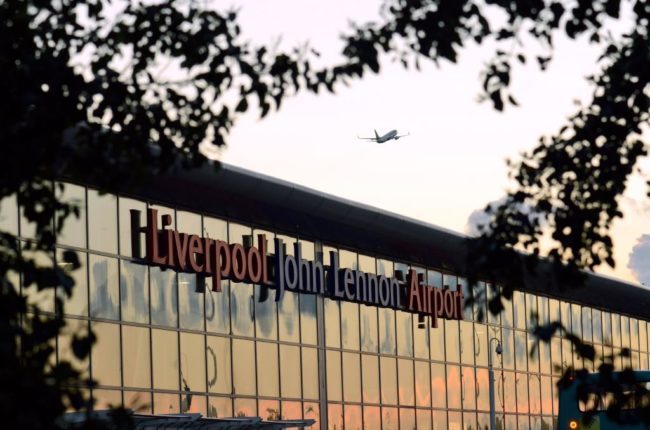Last week Ryanair added four new routes at Liverpool Airport, taking the total to 31, and it said scrapping Air Passenger Duty could unleash a new era of rapid growth. Tony McDonough reports
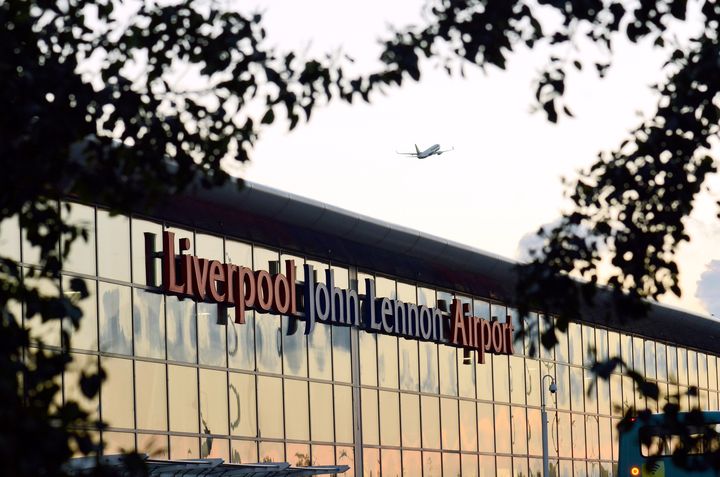
Last week Irish carrier Ryanair announced four new routes out of Liverpool John Lennon Airport (LJLA), taking the total up to 31.
This represents an investment of £80m into the airport and will lead to the creation of an extra 30 jobs. Ryanair also said it would raise the capacity on seven existing routes out of Liverpool by 15% for the forthcoming summer season.
On the following day the airport itself announced it was to hold a recruitment day to fill 200 vacancies. Both of these announcements would indicate LJLA is making a strong comeback after enduring the most torrid period in its history during the pandemic.
However, Ryanair also used the opportunity to return to an issue that has been a bugbear for UK airports, and the airlines that use them, since 1994 – Air Passenger Duty (APD).
APD is a levy on every airline ticket sold for passengers departing from airports in the UK and the Isle of Man. Rates vary according to the class of travel and the distance of the flight.
From April there will be four APD bands, one for domestic and three – A,B and C – for overseas flights, which is then further broken down by class of travel.
Lowest rate for band A, for flights of 2,000 miles or less, is £13, rising to £26 for all other classes. For a band C flight (2,001 miles to 5,500 miles) in the most expensive seat the levy would be £200 per passenger.
There is a higher rate for travel in an aircraft of 20 tonnes or more equipped to carry fewer than 19 passengers. In band C this is £601 per passenger.
In 2022, in order to stimulate demand for air travel within the UK, the Government announced that APD on domestic flights will be halved from £13 to £6.50 in April 2023.
It is estimated this will cost the Government £58m in lost tax revenue each year. Overall it is estimated APD will raise £3.5bn in the 2022/23 fiscal year.
However, other countries in Europe either do not have an equivalent tax or have much lower rates. This, says the aviation sector puts UK airports at a competitive disadvantage. It argues the economic boost from scrapping APD would far outweigh the loss to the Treasury.
In late 2020, Ryanair axed most of its UK internal routes. This was largely in response to demand plummeting during the pandemic. But the airline has long argued such routes have long been vulnerable due to APD.
The only one that operated last summer was the one connecting Derry in Northern Ireland, to Manchester.
However, following the Government’s announcement of the halving of APD for domestic flights Ryanair announced a number of new routes. These included London Stansted to Cornwall and Belfast to Edinburgh.
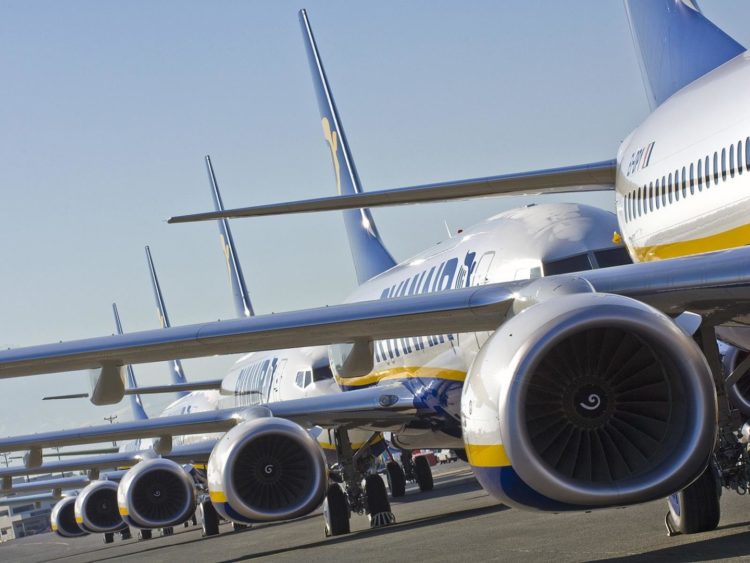
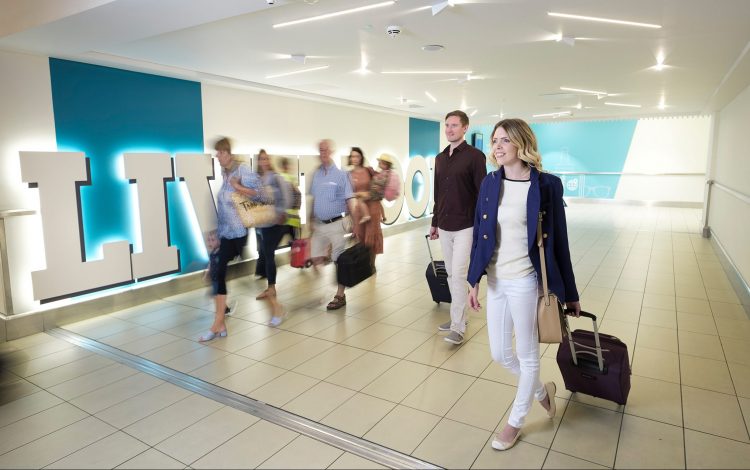
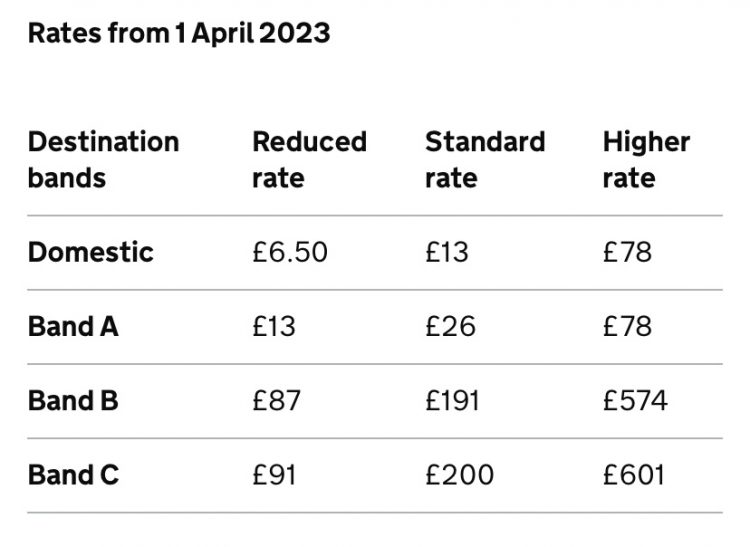
In an interview with LBN, Dara Brady director of marketing, communications and digital, at Ryanair, said that if the Government was to scrap APD airports such as Liverpool would become an even more attractive proposition.
“What has really driven our investment at Liverpool Airport is the great relationship we have with them,” said Dara. “We work with the people at the airport very closely and we have a really good deal with them.”
“How much bigger would Ryanair be in the UK if it wasn’t for APD? Due to the halving of APD on domestic flights we have launched a number of new routes out of airports such as Belfast. They would not have existed without the cut.
“By removing APD altogether the UK would see a growth in the number of routes out of UK airports – and that growth would be bigger than it is now. We are growing much more quickly in markets such as Italy and Spain.
“If we are to continue to grow and to drive recovery and connectivity to the UK, Prime Minister Sunak must immediately scrap APD in full for all travel (not just domestic travel) and provide incentives for airlines such as Ryanair to stimulate growth and recovery for the UK and its regions, such as Liverpool.”
Ryanair’s main European rival easyJet, which operates more than 25 routes out of Liverpool, is also in favour of scrapping APD. Chief executive Johan Lundgren agreed that removing APD would allow airlines to provide “more routes and lower fares”.
In 2018 research by trade body Airlines UK claimed UK airports, including Liverpool, were missing out on more than 60 routes, both domestic and international, due to the burden of APD. It said Liverpool could add up to 12 routes including a long-coveted hub link with Heathrow Airport. Click here to read the full report.
Tim Alderslade, chief executive of Airlines UK, said: “APD is the highest rate of tax on air travel anywhere in the world which impacts all departing passengers from and within the UK and can, on some routes, represent up to 50% of the ticket price.
“The aviation sector is a vital pillar of the UK economy, with UK airlines generating substantial positive spill-overs for other sectors and the wider economy including an overall contribution to GDP of £10.9bn, support for around 200,000 jobs and providing for over 45% of the UK’s extra-EU trade by value.
“The UK, therefore, remains at a competitive disadvantage as a result of its policies on taxing air passengers.”
A report by consultancy Steer Davies Gleave in 2017 evaluated the impact of the direct connection between Manchester and Beijing – the first ever direct connection from the UK to mainland China outside of London.
It found exports from across the north of England from Manchester Airport to China nearly tripled to around £200m a month in the year after the launch of the new route. It also revealed spending by visitors from China doubled to almost £140m a year.
Liverpool Airport, which has been vocal about APD in the past, declined to comment for this article and instead directed LBN to its trade body, the Airport Operators Association (AOA).
In 2022, AOA chief executive Karen Dee made a number of public comments around APD. She said: “Cutting domestic APD on the one hand while increasing it on long-haul travel may make sense on a Treasury spreadsheet but shows a fundamental misunderstanding of how the UK relies on aviation for its prosperity.
“The UK Government’s ambition to create ‘Global Britain’ has seen Ministers invest in improving our trading relationships with key markets across the globe. Increasing the tax on the only way to travel to these countries fundamentally undermines that ambition and effort.
“Not only will UK businesses now be penalised for travelling to seek out opportunities and build new trading relationships, there will also be fewer opportunities to get our goods to market.”
She also said that if APD were to be cut or scrapped then airlines would respond with “more routes and greater investment in the regions of the UK, enabling airports to help level up their regions”.
“The AOA believes a cut of at least 50% in APD is vital for our post-Brexit future,” she added.
As things stand, the industry’s call for the end of APD, or at least more reductions, is not making much headway with Government. In November 2022 then aviation minister Baroness Vere said there were no plans to revisit the issue.
She said: “We just looked at Air Passenger Duty, so we won’t be looking at it again. The aviation industry has benefited from not being taxed on fuel so there are benefits to it.”
One of the powerful arguments against scrapping or reducing APD is that it would be incompatible to the UK’s push to achieve net zero carbon by 2040.
Aviation offers a very visible representation of the carbon emissions that are driving climate change. This mindset is prevalent among a number of members of Liverpool City Council.
The authority it a minor shareholder in the airport but, having declared a ‘climate emergency’ in 2021, there are councillors who are openly hostile to the expansion of their own city’s airport.
However, there is also a persuasive counter-argument. Aviation accounts for around 2% of the total human carbon emissions, similar to commercial shipping.
This is very small in comparison to the main drivers of emissions – power and heat generation (25%), agriculture and other land use (25%), road transport (10%) and industry (21%). Figures come from the US Environmental Protection Agency.
Within the industry emissions, steel and cement production alone account for around 14% of total emissions. Grounding every aircraft on the planet tomorrow would likely make a negligible difference in the battle against climate change.
Besides, pushing airlines away from UK airports is unlikely to cut the number of flights. Carriers such as Ryanair and easyJet will simply establish routes in other European locations.
Aviation has made the world smaller. It has allowed cities, nations and people to forge both economic and cultural links.
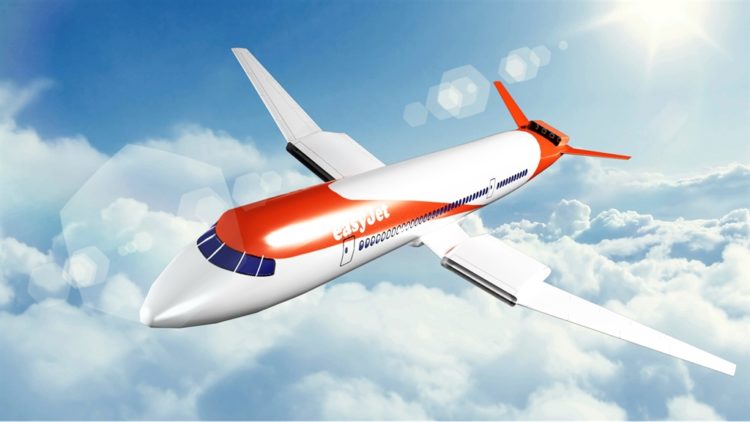

Airlines and aircraft manufacturers are also investing in the development of sustainable fuels and aircraft. Airbus is leading a major project into hydrogen-fuelled planes and easyJet is investing into developing both hydrogen and electric aircraft.
Liverpool city region has ambitions to create a thriving ‘green’ economy and is also catching the eye of global investors for its new Freeport initiative. In that context, reducing critical connectivity to save a tiny volume of emissions makes little sense.
READ MORE: Liverpool City Region Freeport ‘open for business’
Paul Cherpeau, chief executive of Liverpool Chamber, believes there is a middle way that can help the city region achieve economic growth while still making a contribution to our decarbonisation efforts.
He told LBN: “Ryanair’s decision to expand capacity and service at Liverpool JLA is great news for the city region and is reflective of the high-quality performance it delivers to passengers and carriers every day.
“The wider arguments for and against the abolition of Air Passenger Duty are complex and there is economic and ecological rationale on both sides.
“On the face of it, any initiative which puts more money in the pockets of consumers and encourages businesses to grow should be welcomed. Indeed, we have already seen that the reduction in domestic duty has incentivised operators to increase routes.
“Conversely, we must also remember why the duty was introduced and that we face a climate emergency. We cannot escape our responsibilities to create sustainable investment in the longer term.
“It’s important therefore that while APD remains in operation it must be ringfenced and used directly to support the air travel industry to innovate and modernise, separate from general expenditure.
“This in turn can stimulate even further sustainable expansion of our airport infrastructure and the creation of new jobs and wealth in the city region economy.”

